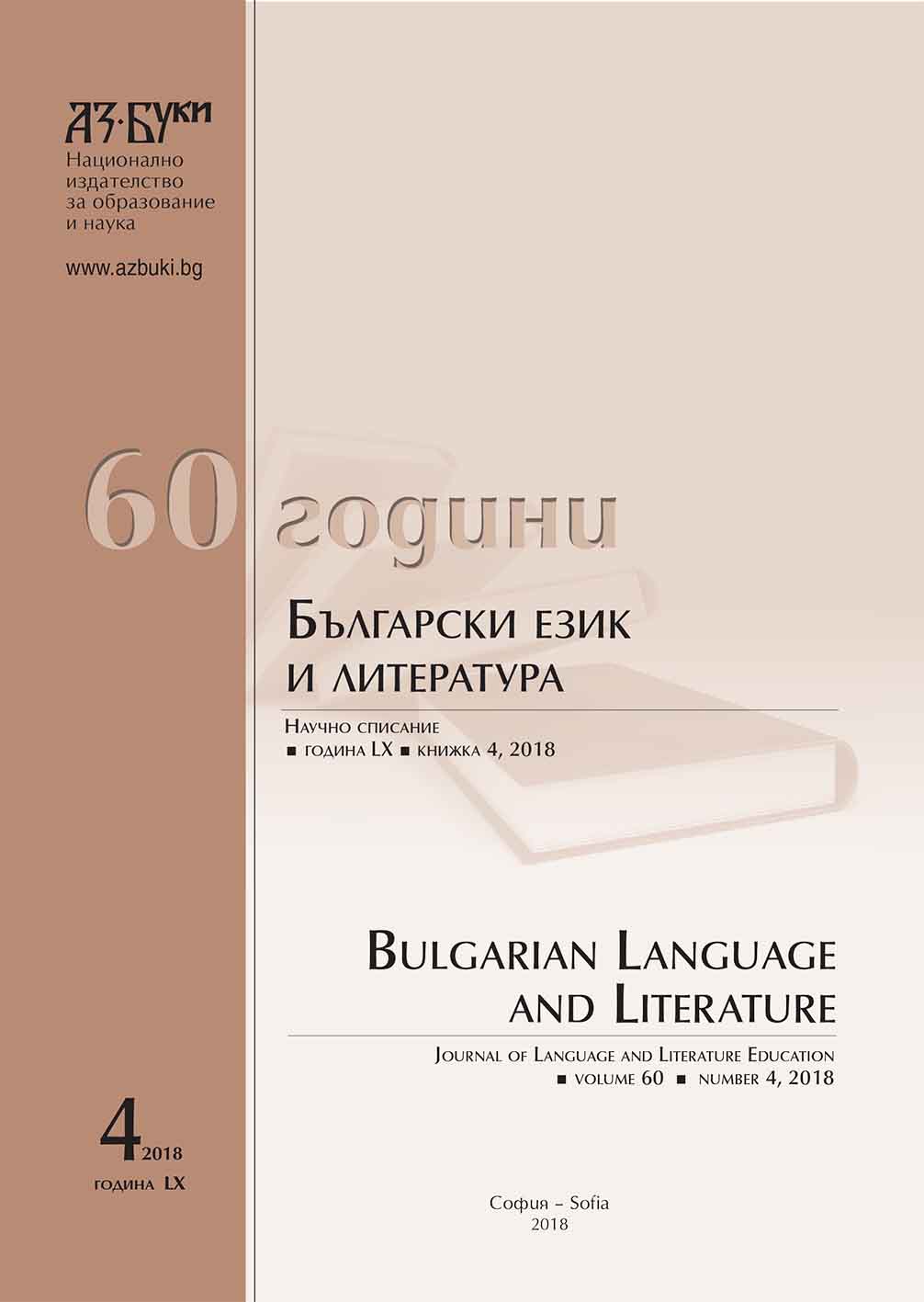
We kindly inform you that, as long as the subject affiliation of our 300.000+ articles is in progress, you might get unsufficient or no results on your third level or second level search. In this case, please broaden your search criteria.

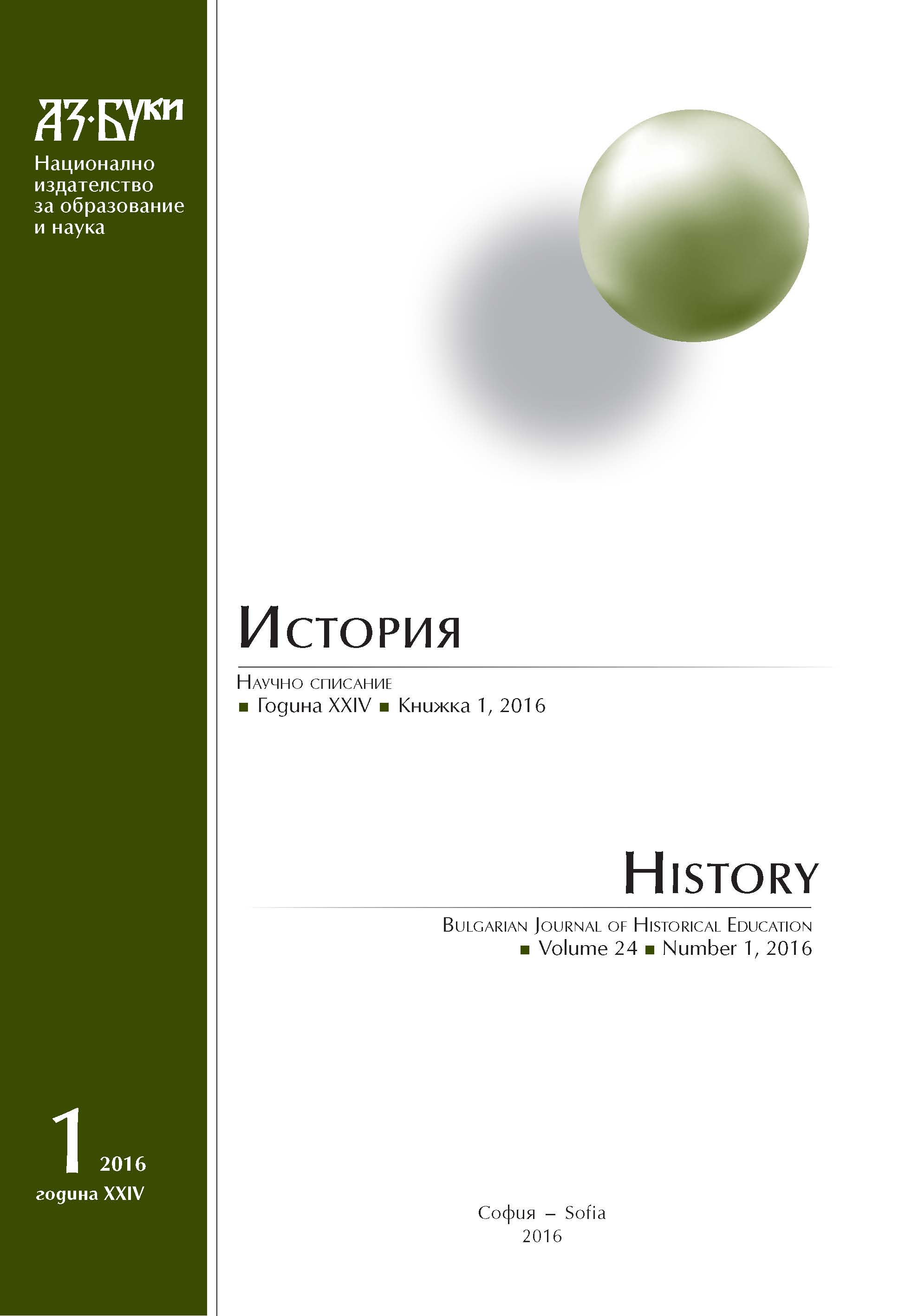
The article reveals main facts of the historical development of the Museum of Bulgarian book publishing (second half of 19th and early 20th century) founded in the city of Plovdiv by the end of 1960s. The permanent exhibition was inaugurated at 22nd of May 1975 in the house of the founder of our national typography – Hristo Gruev Danov (1828 – 1911). The key events, related to emergence and evolution of publishing business were shown in six exhibition halls, via artifacts, documents, pictures, etc. The old Revival house, in which the Museum was arranged, deserves a special attention. It combines the vision of a typical medieval tower and the artistry of а Renaissance edifice. Nowadays, the Museum of typography is a pleasing cultural topos located just to the entrance of the Old town and very close to the Orthodox cathedral. It attracts a lot of visitors, mainly Bulgarians, who are inspired by intellectual dignity of Revival period and by the personal magnetism of the popular originator of our national typography – Hristo Gruev Danov.
More...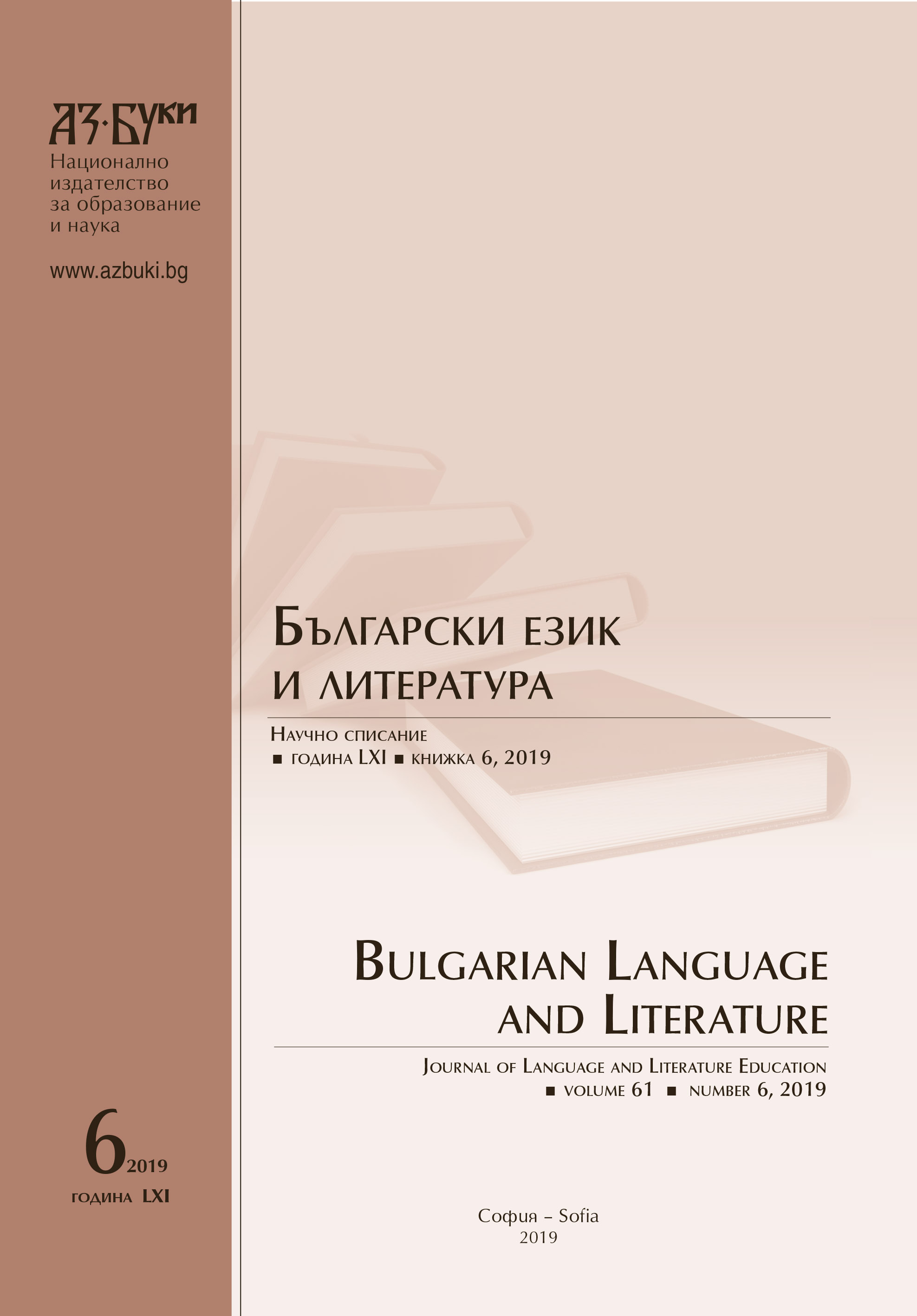
By examining the “Path Through the Years”, the study draws conclusions about the construction of memory in the memoir realm of Konstantin Konstantinov. It traces the extent to which the literary history in the book approaches or departs from both the literary history proclaimed after 1944 and today. The reflection on the first reviews of “Path Through the Years” leads to conclusions about the shift in attitude towards the book over the decades, which supports the thesis that the past and the perceptions towards it are differentiated and reevaluated in accordance with the pulse of time.
More...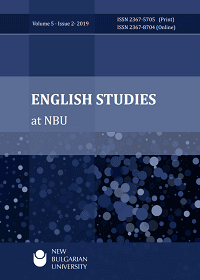
This paper reports on a study of how a group of tertiary level EFL teachers perceived and used mobile devices in their teaching and personal learning. One hundred and fifty teachers (66 female, 84 male) from public universities in Saudi Arabia completed an online questionnaire. Results showed that the majority of participants used mobile devices and applications in their teaching and learning. Survey data showed that the vast majority of teachers had positively perceived and frequently used mobile technologies in their teaching and personal learning. In addition, there was a correlation between teachers’ use of mobile technologies in their teaching and their use in learning. There was also a correlation between how teachers perceived the value of mobile technologies in learning, and how they use them in their teaching.
More...
The main purpose of this study is to explore the critical issues that impede an effective implementation of information communication technology (ICT) as related to higher education (HE) in Morocco. An e-readiness survey based on Harvard e-readiness assessment framework is administered in order to check the role of university in getting Morocco e-ready. First, a diagnosis is done at the level of preparedness of Moroccan institutions in networked areas of access, society, economy and policy. The data was collected from the annual reports of Moroccan Telecommunications regulations agency (ANRT), reports from the International Telecommunication Union (ITU), Global Information Technology Report (NRI), quantitative and qualitative surveys from previous research studies, and statistical websites. The findings reveal that Morocco has, apart from networked economy and local digital content, a fairly advanced e-readiness status in other indicators in the model of Harvard Centre of International Development. Ironically, such findings show that it is the Moroccan university that needs to catch up with society.
More...
This research is an attempt to examine the developmental relationship between democracy and the socioeconomic conditions in Bulgaria. The assumption is that one of the factors contributing to the negative attitude towards democracy in Bulgaria is the high level of social inequality. After discussing the relevance of studying democracy and socioeconomic conditions from a developmental perspective, the paper traces the socioeconomic development of Bulgaria from 1989 to date and examines public perceptions of social inequality in the country. The research has not revealed any overall negative public attitude towards democracy in Bulgaria. However, the findings have demonstrated a clear tendency for the public support for democracy to decline reflecting the growth of social inequality.
More...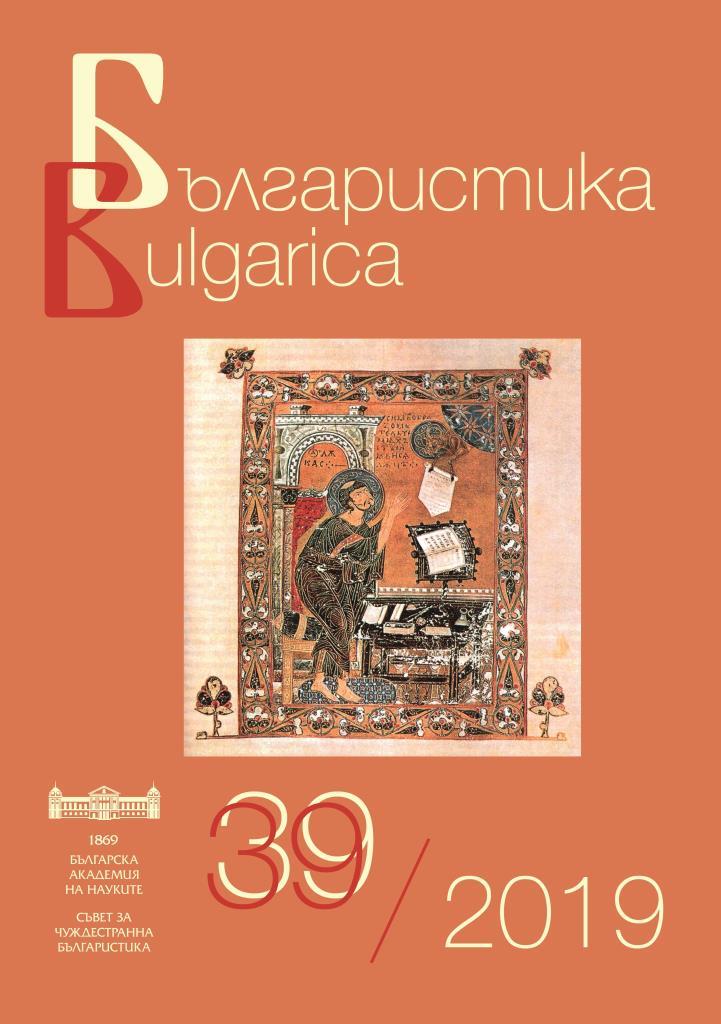

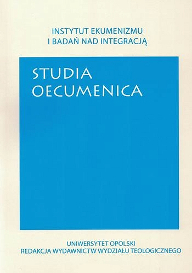
W duchu dialogu judaistyczno-chrześcijańskiego, w artykule zajmuję się tekstem Ez 48,30-35, który jest bardzo ważny dla obu wspólnot wierzących. Ostatnia wizja Ezechiela (Ez 40–48) stała się źródłem inspiracji dla judaizmu i chrześcijaństwa. Nie ma jednak zgodności w interpretacji tej prorockiej zapowiedzi: nastania nowej świątyni i nowego miasta. Świątynia (+ miasto) została przedstawiona w świetle judaizmu rabinackiego, pism qumrańskich oraz samego Ezechiela. W części egzegetycznej przebadano dokładnie tekst Ez 48,30-35. Na zakończenie zostały przedstawione wnioski teologiczne w sześciu punktach: chwała Jahwe; dziedzictwo patriarchów; potęga Jahwe; obecność Jahwe; nadzieja Izraela; recepcja chrześcijańska. Księga Ezechiela pozostaje jednym z najbardziej tajemniczych pism biblijnych. Jej potencjał teologiczny nie zawsze jest doceniany. Odnosi się to również do kwestii dialogu międzyreligijnego. Ezechiel był heroldem świętości imienia Jahwe oraz poznania Boga: Pana całego stworzenia, obecnego pośrodku swego ludu. Prawdy te stanowią trzon credo zarówno Żydów, jak i chrześcijan. Wspólna ich kontemplacja pozwala na wzajemne zbliżenie, które w końcu wszystkich pragnących doprowadzi do miasta nazwanego „Jahwe (jest) tam” (Ez 45,35).
More...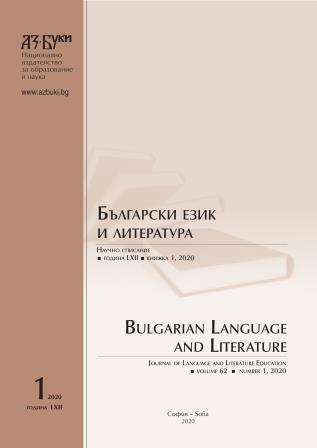
By construing a novella included in Boccaccian “Decameron” the submited instructional project aims to expose an interpreting approach based on comprehension of text as а potentiality, which could be fulfilled by the reader. Observations are aimed at narrator – communicative situation relationship, character creation techniques, and denying of certain ethnocultural stereotypes. Possible inter textual relations are outlined in order to encourage pupils to consider a text as linked to many others.
More...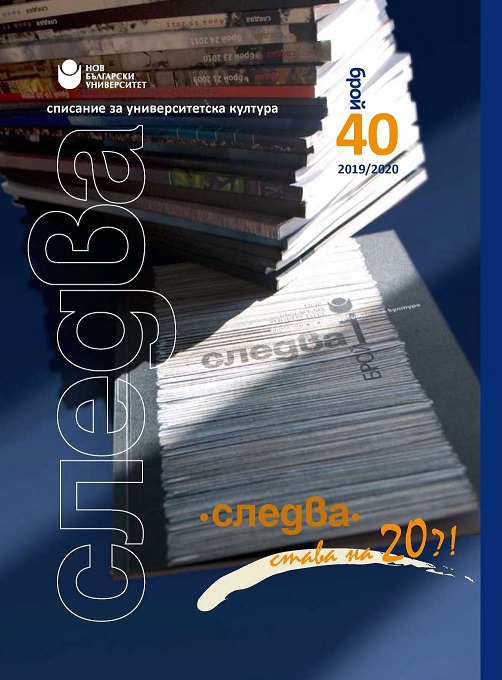
A blitz interview with Georgi Gochev, classical scholar and translator, on his recent work on a new Bulgarian version of Euripides’ Medea done especially for Snezhina Petrova’s socially engaged staging of the ancient tragedy.
More...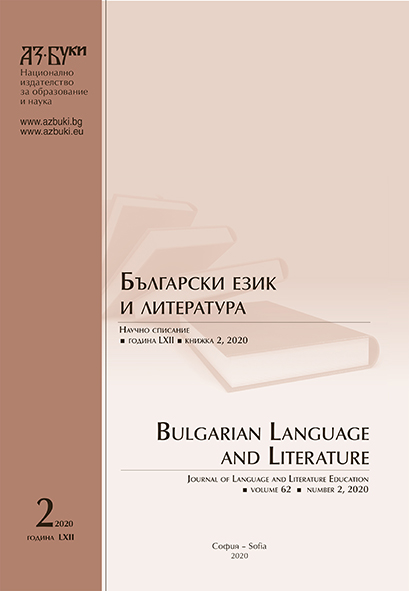
The paper presents the extant copies of the four books, prepared by Petar Bogdan for publishing: 1. The book in so-called Illyrian under the titel [in translation: Meditationes S. Bonaventurae, id est theophilic meditations on the mystery of the redemption of mankind, by St. Bonaventura, translated to Illyrian by Petăr Bogdan Bakšič, custos of Bulgaria and belonging to the Order of Friars Minor Observants of St. Francis]. Rome, 1638. 2. The appendix to the book is a poem on the two deaths of man, meant to be published separately. 3. The book in so-called Illyrian under the titel [in translation: “The celestial treasure of Virgin Mary, the Mother of God, translated by Petăr Bogdan Bakšič, a monk belonging to the Franciscan Order of Friars Minor, archbishop of Sardica or Sofia]. The book was published in 1643 in Rome. The fourth book prepared by the author for publication is known only in manuscript. It is a treatise written in Latin and entitled De antiquitate Paterni soli, et de rebus Bulgaricis [On the antiquity of the fatherland and on the deeds of the Bulgarians]. The manuscript is kept in Estense Library in Modena (Italy).
More...
The article takes a view over the typological similarity of the play „Dragon's wedding“ (a work with highlighted decorative and secession elements) by the Bulgarian writer Petko J. Todorov and the dramatic fairy-tale „Forest Song“ (attributed to the works of neo-romanticism) by the Ukrainian writer Lessya Ukrainka for the first time. It doesn't analyze the direct dependence of the two works, but their typology – the parallel use by Todorov and Lessya Ukrainka of the chromatic code, natural topographies (mountain, landscape, lake, forest, cave), vegetative symbolism, kissing and simil., centered around the image of the Woman and the general concept of the authors for „aesthetics“ in the art.
More...
The problem of the reception of one literature within another is complex – it is linguistic, traditional-cultural, situational-cultural, political, aesthetic. Foreign literature is seldom reciprocated solely for aesthetic reasons, it is seldom reciprocated also for market reasons. Market niches are usually a chance for major cultures such as Russian, French, English, etc., which have strong advertising, languages used around the world, ie. they are cultural colonizers. Small languages and cultures need strong support from the original culture, which needs to develop special tools to promote and translate small literatures. This is usually done by funding transfers from foundations or programs of the country of origin. And since we are talking about Bulgarian literature, it has a different reception everywhere, because the cultural situations in which it fits are different.
More...
This article uncovers the elements of the avant-garde that are present in “Crescendo” magazine (1922) by synthesizing some of the most common aspects of avant-garde magazines and literature that emerge in Europe in the beginning of the 20th century. The aim of the research is not to list and interpret particular texts or reproductions published in “Crescendo”, but to showcase and prove the importance and the essence of this short-lived magazine for Bulgarian culture, as well as for the history of the European avant-garde – a puzzle that still appears to be incomplete.
More...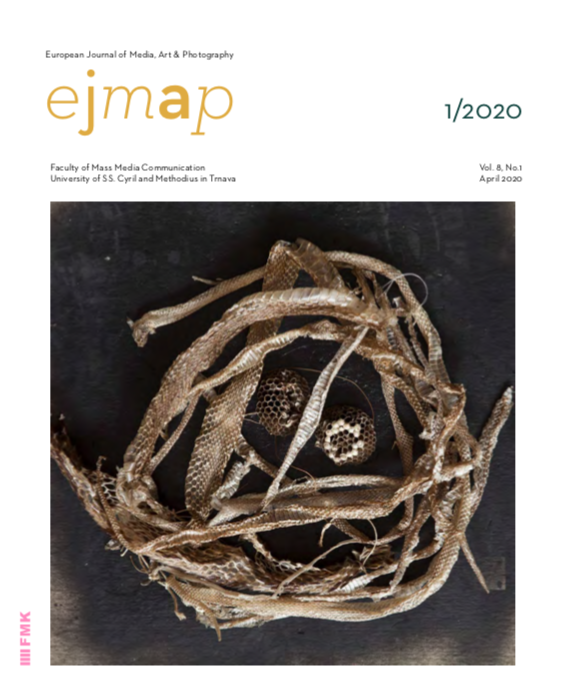
Public publishing space for authors of original contemporary literature in Slovakia has changed and expanded significantly in the last three decades since 1989. Due to the development and use of modern technologies and the existence of digital virtual space, nowadays the authors of Slovak literature can publish their texts in many more media than before 1989, and almost without any limitations. However, the literary, aesthetic, cultural or fundamental artistic relevance of such contributions is in many cases controversial. In the context of the publication space of new media, internet portals and online literary magazines often publish without deeper critical selection and (often even minimal objective literary-critical reflection almost everything delivered to their editorial mailbox as by ambitious writers?), as well by those whose works are lacking basic literary talent and the necessary creativity. The paper maps the situation in the area of publishing original literature, especially poetry, in Slovakia at the beginning of the 21st century in the context of the use of new media and modern digital technologies.
More...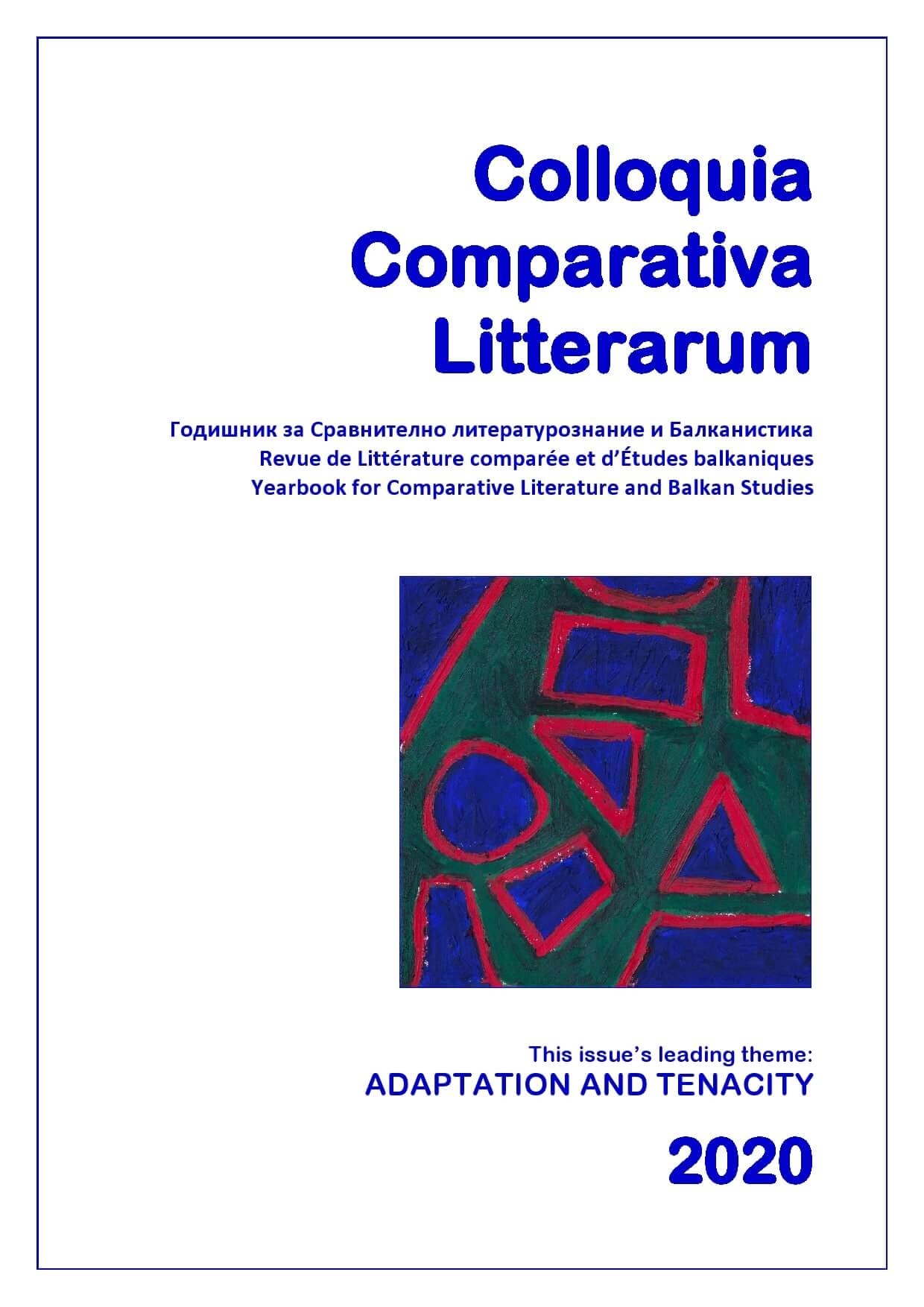
The topic of the paper is the interrelation between two ideological constructs: the figure of Prometheus and the so-called Black Sea region. Both of them represent, in specifically transformed versions, primary ideas and realities that lack the additionally attributed coherence of the later concepts currently in use. It aims to explore the key ancient myth of Prometheus in comparative perspective juxtaposing the stable presence it retains in the Western cultural imagination with its life in the Black Sea region, where this myth initially emerged. It focuses specifically on the underestimated political mobilization of the Prometheus myth in the construction of national identities and in the manufacturing of various ideologies. The different, often conflicting versions are analysed in diachronic perspective that provides observability of the potential paradigm shifts in the conceptualizations of the Prometheus figure.
More...
The paper is dedicated to the history of translation of Sophocles’ seminal tragedy Oedipus the King in Bulgaria. It studies the different strategies of translation that have been adopted by Bulgarian authors, when rendering the Greek word τύχη in contemporary Bulgarian language. In comparing the various translational versions of a short passage from the 3rd epeisodion, and having in mind the translators’ background and decisions, the paper argues that the instance of Oedipus the King is indicative of the productive power of translation. The comparison shows how displacements and shifting of meaning in the process of translation could bring about new, unexpected effects of meaning. This situation is also brought about by the specific way of reception of Ancient literature in Bulgaria, since not all of the translators have used the original in their work.
More...
In this article I undertake a close reading of Ernst Jünger’s War Diary (1914-1918) as a founding text both of his following literary work and his rightwing political radicalization during the Weimar Republic. The representation of the war experience in the War Diary follows a pattern of detachment which relies on an implicit aesthetical perception. This pattern evolves to a literary form in Jünger’s Strom of Steel (1920) and his war books. The war experience of the young apolitical volunteer is subjected latter on to an ideological reshaping and rewriting in Jünger’s evolution to an emblematic figure of the so-called “conservative revolution”. This ideological reshaping configures an (rightwing) political subject who leans on the shining and blindness of the aesthetical perception. The article is a part of a larger comparative study confronting the key role played by the experience of World War I in the work of Ernst Jünger and the leftwing Bulgarian literary critic Ivan Meshekov.
More...
This article examines two Balkan novels in which memories, as fragments woven into the textual fabricof the autobiographical, define the museum-like narrative structure. The focus of the comparative analysis is onthe female voice, which dynamises the museum as a “place of memory” in the novel through the war theme. Byreplacing the lost home with a kind of a mobile ‘museum-novel’ (as a specific type of novel, the genre of exile),writers such as Gabriela Adameșteanu (Romania) and Dubravka Ugrešić (Croatia) problematize the image ofthe waiting woman Penelope, transforming their novels into a female Odyssey between personal and public,authentic and imaginary, past and present, continuity and discontinuity, myth and history.
More...